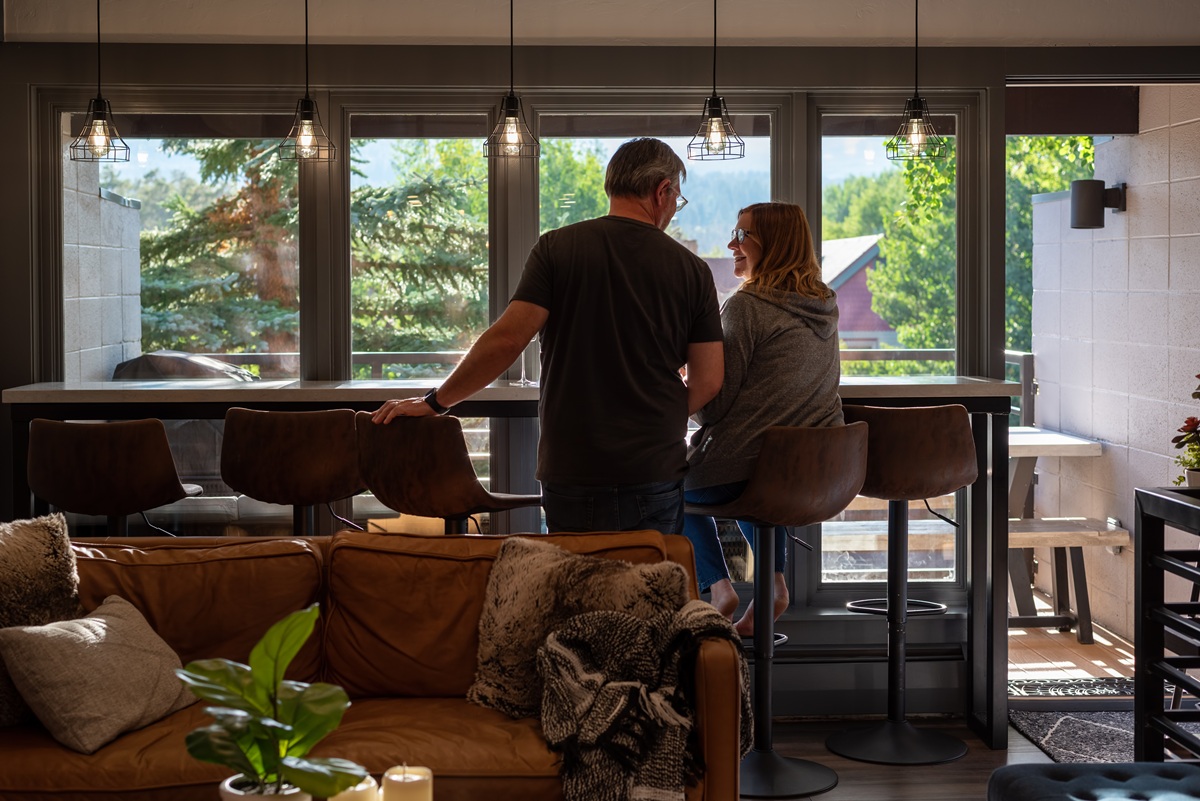By Caroline Andrews
As retirement approaches, many Canadians are reevaluating what their ideal lifestyle looks like. Gone are the days of one-size-fits-all retirement plans. Today, the “new retirement dream” is more personal, more flexible and more diverse than ever. For some, it means embracing urban energy in a sleek downtown condo. For others, it’s the quiet of a country cottage surrounded by nature. And for a growing number, it’s something in between—a hybrid lifestyle that offers the best of both worlds.
 So how do you choose? It depends on your values, goals, finances and vision for the next chapter of your life. Here, we explore the pros and cons of each option to help you find your ideal fit.
So how do you choose? It depends on your values, goals, finances and vision for the next chapter of your life. Here, we explore the pros and cons of each option to help you find your ideal fit.
City Condo: Simplified Living and Cultural Access
Urban living offers retirees proximity to amenities, entertainment and essential services. Neighbourhoods across greater Ottawa—including the downtown core, Westboro, the Glebe, Old Ottawa East and Beechwood Village—have become increasingly attractive to older adults who want walkable access to cafes, theatres, shops, parks and cultural landmarks like the NAC, Parliament Hill and the Rideau Canal. Even suburban areas near Kanata Centrum, Barrhaven Town Centre, the Innes Road corridor, and Place d’Orléans are developing urban-like pockets that support a more walkable lifestyle.
Pros:
- Convenience: No more yard work or snow removal.
- Accessibility: Elevators and wide doorways are in many buildings.
- Walkability: Everything from groceries to galleries is nearby.
- Proximity to health care: Hospitals and specialists are close.
Cons:
- Smaller space: Downsizing is often necessary.
- Noise and bustle: City life isn’t for everyone.
- Condo fees: Those costs can be high and unpredictable.
- Limited outdoor space: Balconies offer only a taste of nature.
A city condo is ideal for those who prioritize lifestyle, convenience and low-maintenance living.

Country Cottage: Peace, Privacy, and Nature
On the other end of the spectrum is rural or cottage living. Whether it’s a year-round home in Lanark County or a summer escape in the Gatineau Hills, many retirees seek the quiet and simplicity of nature.
Pros:
- Tranquility: Escape from traffic and noise.
- Outdoor lifestyle: Enjoy gardening, hiking and seasonal activities.
- Space and privacy: There is room to breathe, with fewer neighbours.
- Lower property taxes: Typically they’re less than in the city.
Cons:
- Isolation: There is more distance from services and family.
- Maintenance: There is more upkeep with wells, septic systems and rural roads.
- Winter access: Snow removal and road conditions can be a concern.
- Connectivity: Internet and cell service may be spotty.
Country living is best suited to those who value peace and are prepared for the responsibilities that come with it.
Something in Between: The Hybrid Lifestyle
Many retirees are now choosing a blended lifestyle: a low-maintenance home in a small town or suburb, combined with a seasonal getaway or travel. Think of a bungalow in Stittsville and winters in Florida or a condo in Westboro and a shared family cottage on Big Rideau Lake.
Pros:
- Flexibility: Enjoy the best of both urban and rural living.
- Lower stress: Avoid year-round commitment to one place.
- Family and social connection: Stay close to loved ones.
- Travel-friendly: Lock-and-leave homes allow you to explore.
Cons:
- Two-property costs: This requires careful budgeting.
- Logistics: Managing multiple homes isn’t simple.
- Transition fatigue: Regular moves can be tiring.
A hybrid lifestyle appeals to those who want variety but are willing to manage a bit more complexity.
How to Choose What’s Right for You
Still unsure? Consider the following questions:
- What kind of setting makes you feel most at ease?
- Do you want to live near family, friends or health services?
- Are daily conveniences within reach?
- Do you prefer walkable communities or are you fine driving?
- Are travel and hobbies part of your plan?
- What can you realistically afford?
- Are you energized or overwhelmed by change?
Speak with a real estate professional who understands the 55+ market. An experienced agent can help you evaluate your options, assess your home equity and connect you with the right downsizing or staging resources.
Planning for the Future
Whatever you decide, consider the long term. Will your new home continue to support your needs as you age? Features like a main-floor bedroom, proximity to care services or a building with elevators can future-proof your living arrangements.
Try out your options before committing. Spend a weekend downtown, rent a cottage or visit small towns to see how each lifestyle feels in practice.
The Bottom Line
The new retirement dream is about more than slowing down; it’s about curating a lifestyle that fits your goals and passions. Whether you’re drawn to the buzz of city life, the calm of cottage country or a bit of both, thoughtful planning will help you live this next chapter to the fullest.
With the right preparation, support and a little adventure, your retirement lifestyle can be exactly what you’ve always dreamed of—or even better.

Caroline Andrews is a real estate advisor with Engel &
Völkers Ottawa, a seniors real estate specialist (SRES®)
and an interior design consultant.






